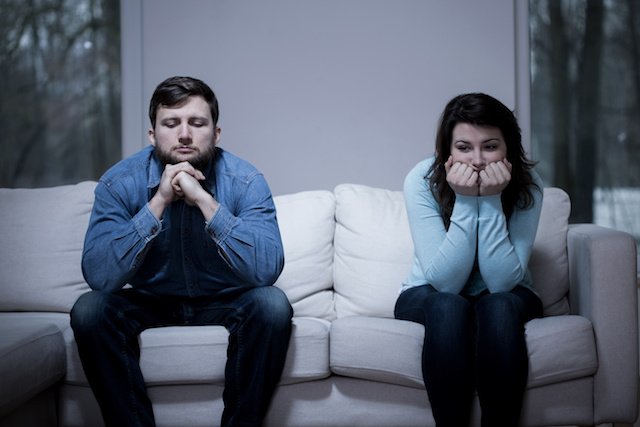
On the Dating and Relationship show I spoke with Dr. Hakim, a psychologist from the Centre of Interpersonal Relationships about mental health in relationships. We were also joined by Phillip Rolle a young professional who has struggled with mental health issues for most of his adult life to share insight on how it has affected his relationships. Everyone at some point in their life has dealt with feelings of anxiety, depression or other emotional setbacks that relate to mental health. However, if we look into the statistics, 1 in 5 people suffer from a mental illness in Canada with anxiety being the most common form. Phil himself has battled anxiety and depression, and on the show we discussed with Dr. Hakim the common signs someone is suffering from a mental illness, how it affects relationships, how to tell a partner about your mental health, and as a partner how to deal with this challenge in your relationship.
I felt very anxious when I was launching my book earlier this year and everyone goes through times where they feel abnormally anxious or depressed based on circumstances. Dr. Hakim reassured that all people experience anxiety and depression throughout their lifetime – to a certain degree. The signs that you may need to look a bit deeper into your mental health depend upon the duration of your negative feelings – ‘has it been going on too long’ – and the level of them – ‘is it way more intense than it needs to be’. From this point you, as well as a practitioner, can assess if it is circumstantial or something to do with a chemical imbalance in the brain. Individuals with mental health issues experience bouts of anxiety and depression in waves all throughout their life and other people are triggered by situations such as health news, jobs or relationships. It is important for someone facing depressed or anxious feelings to assess how much it is derailing their life, to distinguish if it is mental health issues they are dealing with or simply circumstantial stressors.
that you may need to look a bit deeper into your mental health depend upon the duration of your negative feelings – ‘has it been going on too long’ – and the level of them – ‘is it way more intense than it needs to be’. From this point you, as well as a practitioner, can assess if it is circumstantial or something to do with a chemical imbalance in the brain. Individuals with mental health issues experience bouts of anxiety and depression in waves all throughout their life and other people are triggered by situations such as health news, jobs or relationships. It is important for someone facing depressed or anxious feelings to assess how much it is derailing their life, to distinguish if it is mental health issues they are dealing with or simply circumstantial stressors.
Phil himself said that it took him a long time to realize it was in fact a mental illness he was facing. Coming from the Bahamas he experienced seasonal affective disorder at first. But then he realized he couldn’t get out of his funk and sought help. Seasonal mood changes are common even among natives to Canada – but he looked at the duration of his feelings and saw that it in fact was derailing his life, so he knew there was something more to it. He felt unhappy for a long time and we discussed with Dr. Hakim how this affected his relationships. Dr. Hakim told us that we often save the best and the worst for our partners because when we let our guard down, raw emotions are revealed. This is why mental health issues in relationships can become so hard to deal with. There may be more conflict in the relationship because of unpredictable or continuous negative moods. But it is important to keep in mind that when in a relationship with someone facing a mental illness, you want to have the opposite of empathy. You don’t want to assume how the other person is feeling, because you really don’t know and probably never will if you are not going through it yourself. You need to create an open and receptive space where your partner can talk about their challenges followed by the most important piece, validation. Validate them by expressing ‘it makes sense you would feel or act this way even though I don’t get it or I wouldn’t do the same thing’.
 Though most relationships can succeed if the proper communication and feelings are expressed, there is the challenge of when to tell your partner about your mental health. It was not encouraged by Dr. Hakim, Phil or myself to come right out and disclose it. You need to create a secure attachment with someone that gives you a feeling of ‘this person will be there for me’ before you reveal challenges with mental health. On the partners end, if they also feel this attachment it is easier to engage with someone about their struggles since your partner will also feel that ‘there for you’ feeling.
Though most relationships can succeed if the proper communication and feelings are expressed, there is the challenge of when to tell your partner about your mental health. It was not encouraged by Dr. Hakim, Phil or myself to come right out and disclose it. You need to create a secure attachment with someone that gives you a feeling of ‘this person will be there for me’ before you reveal challenges with mental health. On the partners end, if they also feel this attachment it is easier to engage with someone about their struggles since your partner will also feel that ‘there for you’ feeling.
Going through mental health struggles with someone is always better than going through it alone, and Dr. Hakim told us about some of the most popular forms of treatment for mental illnesses. She encourages that medication in addition to therapy is usually the best plan since successful therapy can wean people off of medication for a long-term fix. Pills are often the most common medication but people can also see a naturopath for mental health issues. Therapy can be helpful for identifying emotional triggers and past patterns on how someone developed these issues in the first place.
In facing any issue in life, support is what we need. Relationships often foster the most support, so I was happy that Dr. Hakim and Phil joined Sandra and I in studio to discuss how to deal with mental health in relationships. Listen to the full show on AM640! If you have questions about dating or relationships sign up for a date coaching session today.